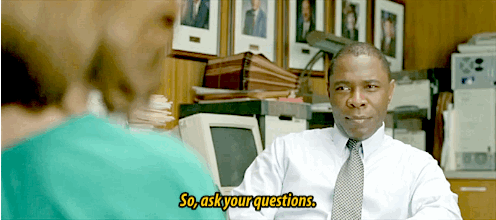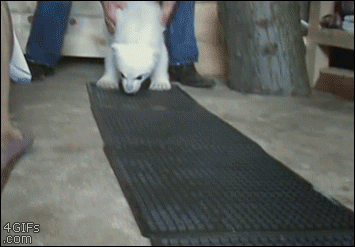Your roommate straddles the line between B- and C+ in her Shakespeare class. It all comes down to one paper. When she asks for some peer edits, she expects a few comma revisions here and there, but little does she know… this paper sucks. She spelled “Antonio” wrong and you don’t see a thesis statement or a valid conclusion. So how do you give her the constructive criticism she needs without getting the evil eye?
1. Make her a sandwich
Your hungry and deprived friend might appreciate ham and cheese with mustard during this editing session. But even more importantly, employ the editing sandwich: a slab of criticism slapped between two slices of positivity. Always begin with encouragement. “Your idea about Antonio and Bassanio being gay lovers is phrased really well, but you spelled Antonio wrong. That sentence transitions nicely into the next one, though.” Your friend now knows exactly what she does well and she will keep doing it. It also frames the hard stuff in a nicer light.
2. Cheer on the home team
The last thing you want is to wake up in the morning to your roommate calling you professor. You’re still roommates, so talk to her like a roommate. Stay away from the pedestal, and don’t take the side of a professor. Even simply using language like, “Your professor will probably kill herself if she sees that you referenced The Merchant of Venice movie” rather than “Don’t reference the movie” will send the message that you’re on your roommate’s team. It will make the environment lighthearted and not too serious.
3. Get out the interrogation lamp
Ask questions while you edit. “What did you mean by this? Do you think this might be confusing?” It helps her look at the paper from an outside perspective while still maintaining her own ideas, not yours. When you ask instead of tell her, “This is too confusing,” you infer that you want to help, not take over her paper. No one likes a bossy friend, and giving your roommate the power to decide by answering your questions puts you on the same level.
4. Take baby steps
In this moment of stress, you should probably avoid throwing your hands in the air and saying the paper is a lost cause. Breaking overarching problems down into smaller steps will assure that your roommate doesn’t freak out and regret asking you for help. If the paper lacks a solid point, break it down by asking why she thinks certain aspects of the paper contribute to her overall idea. It’s a lot better than saying, “You don’t really prove anything here” and storming out of the room.
5. Go a little highlighter crazy
Some neon will lighten the mood, right? If she makes a lot of small errors, like commas or spelling, it helps to begin highlighting or underlining them. She’ll appreciate you getting down to the nitty gritty of the paper’s errors, it’ll save you time instead of going through each specific error and she’ll learn to not make those mistakes again. It’s a win-win for both of you and inspires future improvement.
6. Put one foot in front of the other
Your roommate won’t respond well to too much criticism at once. Avoid the word vomit that may occur when you see a really faulty paper. Instead, narrow your focus to help with one area at a time. Start with content: does the paper have a point? Does it prove something? Does it fit the assignment? Then focus on grammar: spelling, commas, wording and proper format. Breaking a crappy paper down makes it seem like less of a big deal and gives better results.
7. Come back for more
You probably have a life outside editing your roommate’s papers. Mention some changes, catch up on Econ 101 reading while she edits and then make it clear that you’ll help with a second draft if necessary. It helps your roommate to not get overwhelmed or feel like you’re putting even more work on her shoulders. Plus, it gives an even clearer picture that you’re only there to help, not to patronize her.


























